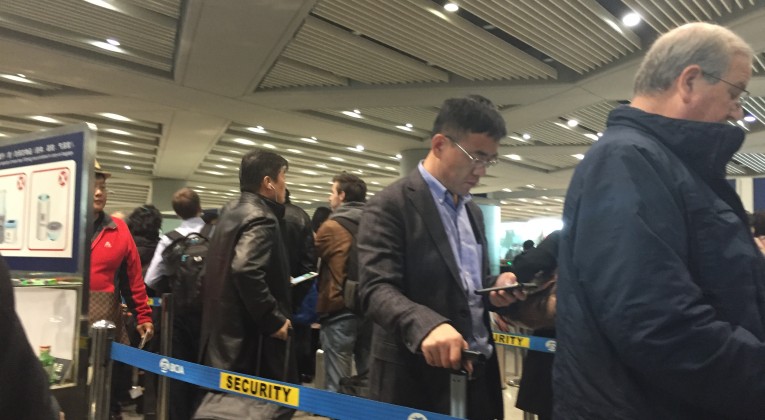In a move that elicited disapproval and dismay from Democrats, Republicans, and leaders of many other countries, newly elected President Donald Trump on Friday issued an executive order that barred refugees, visa holders, and permanent U.S. residents from seven predominately Muslim countries from reentering the U.S. Chaos ensued, as travelers, airlines, and airports were caught off guard by the new restriction, which was imposed with no advance notice.
Protesters quickly mobilized and demonstrated against the ban at many of the country’s largest airports, and lawyers secured court orders in several cities temporarily staying the executive decree. In the end, the administration was forced to soften its stance, although the turnaround caused as much confusion as did the original order.
Politically, it was a constitutional crisis; on the ground, it was a mess.
As has become his signature move, President lashed out on Twitter at those who criticized the ban, blaming the protesters and a Delta computer meltdown for the confusion and disarray at some airports.
No doubt the demonstrations somewhat disrupted airport operations. Adding hundreds of extra bodies to the normal airport traffic can only slow down things down. But the protests were legal and peaceful, and entirely predictable given the nature and scope of Trump’s executive order.
As for the Delta IT breakdown, it occurred on Sunday evening, well after the peak confusion, and in any case only affected domestic flights.
Trump and his team bear most of the responsibility for the airport chaos. Imposing such a draconian policy without consulting and coordinating with the affected parties—government agencies, airports, airlines, travelers—was bound to play out exactly as it did. What transpired was the direct result of inept management. Which doesn’t bode well for international travel over the next four years.
Reader Reality Check
How do you expect the new administration to affect travel during the next four years?
After 20 years working in the travel industry, and almost that long writing about it, Tim Winship knows a thing or two about travel. Follow him on Twitter @twinship.
This article first appeared on SmarterTravel.com, where Tim is Editor-at-Large.






It’s hardly a Constitutional crisis. Foreigners have no Constitutional right to enter the United States, and the statutory authority to do what he did has been on the books for decades, and was used by prior Presidents, even Democrat ones.
It’s now found at Title 8, United States Code section 1182 (f), which reads in pertinent part:
“(f) Suspension of entry or imposition of restrictions by President. Whenever the President finds that the entry of any aliens or of any class of aliens into the United States would be detrimental to the interests of the United States, he may by proclamation, and for such period as he shall deem necessary, suspend the entry of all aliens or any class of aliens as immigrants or nonimmigrants, or impose on the entry of aliens any restrictions he may deem to be appropriate.”
Visas are issued on the terms that they may be cancelled at any time, so just having a visa does not give one a right to enter the country if the President invokes this authority.
Well said, support your views 100%. Perhaps we can make the politicians, eletes and the entertainment industry “barnacles” understand that there are some individuals that don’t live on a United States coastal areas that there are those of us who don’t want the same status quo we have had to endure for the last 8 years.. Hoo Rah Semper Fi